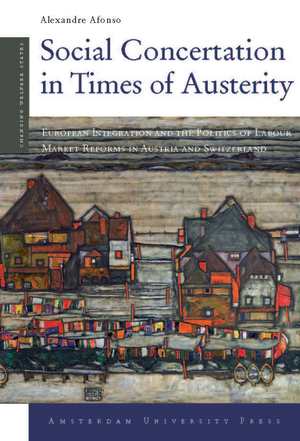Afonso’s interesting comparison of labor mobility (an EU issue) and unemployment policy (a domestic issue) sheds light on why governments sometimes fall back on corporatist institutions, even in the current economic climate. And that reason is, in a word, political: because governments need the cover of such bargaining when they face electoral risks.
Prof. Pepper Culpepper, European University Institute, Florence
Not so long ago social concertation arrangements were considered an industrial relations phenomenon which was functionally linked either to the institutional endowment of particular countries or to the problem load they faced. Through an analysis of labor market reforms in Austria and Switzerland, Afonso’s book shows that social concertation is an eminently political phenomenon. In so doing this interesting book contributes to move comparative political economy research away from rationalistic accounts of optimal designs and to bring it closer to an historically-contingent and actor-centered reconstruction of institutional trajectories.
Prof. Lucio Baccaro, University of Geneva

